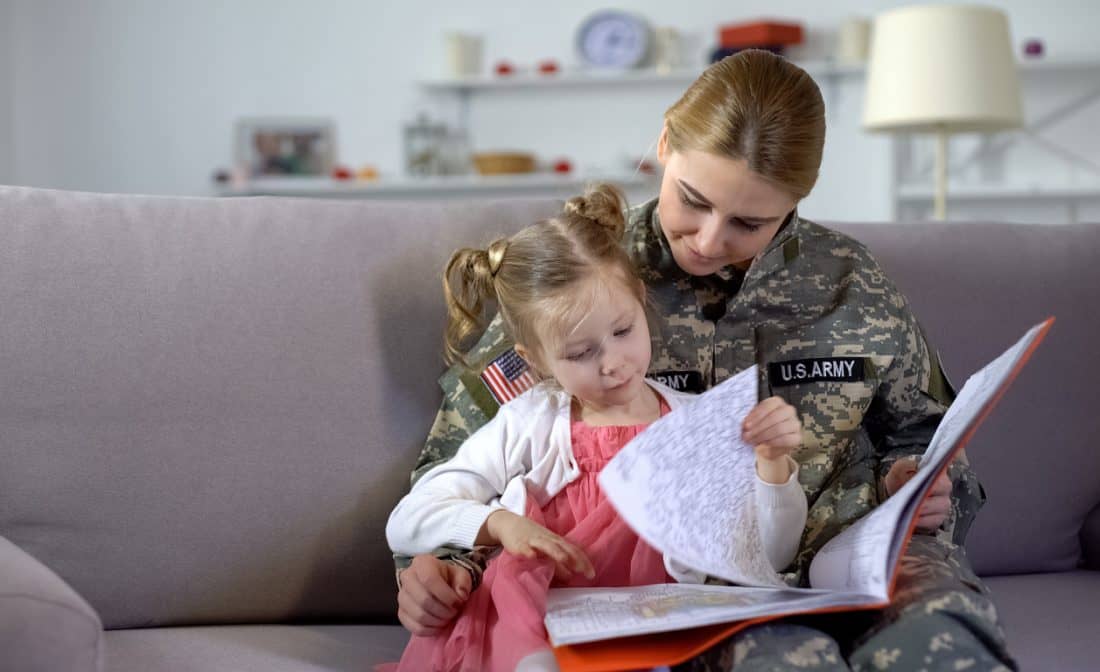Three Strategies for Recruiting and Retaining Military Students
Military students, whether active-duty, reserve, or veteran status, make up a significant portion of students enrolling every year at higher ed institutions all over the country. It can be challenging enough marketing to adult students in general, which is why it’s important to understand the nuances of adult students who are also affiliated with the military. These students often come to the table with invaluable real-world experience, a clear set of goals, and the willingness to exert the disciplined effort necessary to succeed. But recruiting and retaining military students requires addressing their specific needs and expectations, which are not always obvious. Below are three ways to help your school recruit prospective military students as well as retain the ones you already have.
Show Military Students You Appreciate Their Service
It’s important to let military students know that you value and appreciate their service. There is certainly a sense of pride that many have for serving their country, and a school that recognizes and celebrates their sacrifice in unique and authentic ways will draw their attention.
One way of doing this is to communicate an awareness that these students bring a unique experience to their academic community, one that makes the learning environment better for everyone. As one article from the Association of American Colleges & Universities (AACU) details:
“Veterans can bring with them a wealth of knowledge about living abroad, as well as deep personal experience with innovation, accountability, and responsibility. The influx of veterans … provides new opportunities for the enrichment of classroom discussions and the enhancement of campus diversity.”
UCLA serves as a great example of a school who helps these students feel appreciated. This video on its website honors military students for the wonderful leadership and teamwork skills that they bring to the school and concludes with its heart-warming commitment to serve these students as they have served us.
The University of North Dakota also provides an appreciative spirit with highlighted military stories on its website. By allowing a space for these students to share their experiences, they are doing much more than simply telling these students that they care about their unique and sacrificial background.
Wright State University launched a Veterans’ Voices Project, which also encourages veterans to share their experiences in an attempt to preserve and maintain the unique and heroic stories of all generations of veterans. But Wright State’s commitment to serving these students goes even further with a Veteran Services minor. It’s hard to imagine that any military prospective student, seeing this minor, would not recognize the school as both military friendly and hospitable to students like them.
This doesn’t mean you have to offer new curricula, of course, but the point is that these are just a few authentic ways for a school to demonstrate that it values, understands, and truly wants to serve this unique demographic. It’s about coming up with a personalized way of thanking them for their service—and then highlighting your willingness to serve them as well.
Tailor the Application Process for Them
Another important way to attract these students is to customize the admissions process for them as much as possible. This doesn’t necessarily mean changing requirements (though there may be instances when this is appropriate) but, rather, making them feel like their personalized needs are being met and that the school is genuinely trying to work with them. These students approach schools with questions about how their military experience can translate to course credits, financial aid related to Yellow Ribbon and other tuition benefit programs, class flexibility (especially for active-duty students), and so on. Therefore, it’s important that your website and admissions information are tailored to address these specific questions.
Austin Peay State University does a great job on its website by featuring information that is customized and most relevant to these students. From information on VA Education Benefits to ROTC to the Military/Veteran Graduate Recognition Ceremony, the school provides an easy-to-navigate site to help address the many specific questions prospective military students might have.
Another way to speak directly to military students and help them feel like they are being treated with personalized attention is to highlight third-party endorsements that are specifically relevant to military students. Third-party validations matter; it’s more convincing to a prospective student to hear that a school effectively serves military students from someone other than the school itself. Jacksonville University does this on its Veterans and Military Resource Center homepage with badges that signify the respect it has earned for its educational programs and related services for military students.
Offer On-Campus Camaraderie
Another effective way to attract military and veteran students is to connect prospective students with those who understand them best: individuals with military experience. This is exactly what Old Dominion University does. They offer prospective students the opportunity to contact military-affiliated students majoring in business or public administration to get a sense of what life is like on campus for someone with a military background.
UCLA further appeals to military students with a “Veterans Resource Team” tab on its website, which provides a photo, title, location, and contact info for each team member, inviting prospective military students to form a relationship with knowledgeable employees on campus.
For another great example within the UC system, an AACU article praises UC Santa Cruz’s creation of “a sustainable peer mentorship program. The program is facilitated by a student veteran coordinator and a handful of peer mentors, all of whom go through a selection process and receive extensive training on general campus, community, and veteran-specific resources.”
Can your school provide clubs or groups for these students to meet other peers with similar experiences? Can you make sure they are connected with counselors specifically knowledgeable about military-related questions? Ultimately, can you communicate that your school offers a strong community for military students? The schools that can answer “yes” to these questions will be in the best position to attract and retain these students.
The key is to help military students, both when they are exploring your school and when they are already enrolled, to feel that they are part of a community that offers relationship-based assistance. As an article from Education Dive highlights, these students “are used to a sense of camaraderie and bonding around a shared mission.” Therefore, the programs that can continue to offer a sense of camaraderie through mentorship programs, relationship-focused staff members, and other opportunities for military students to come together will ultimately appeal most to them.




